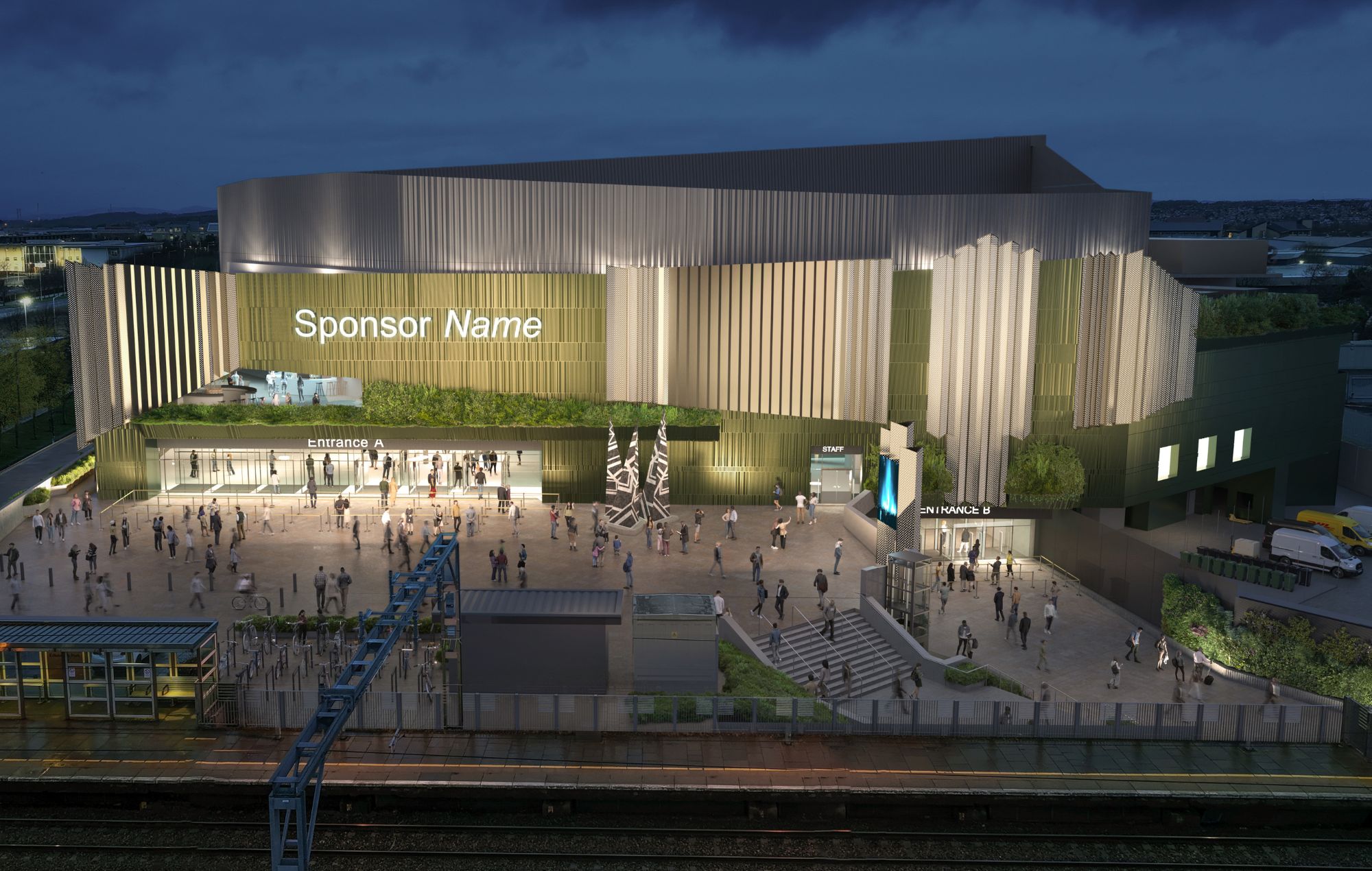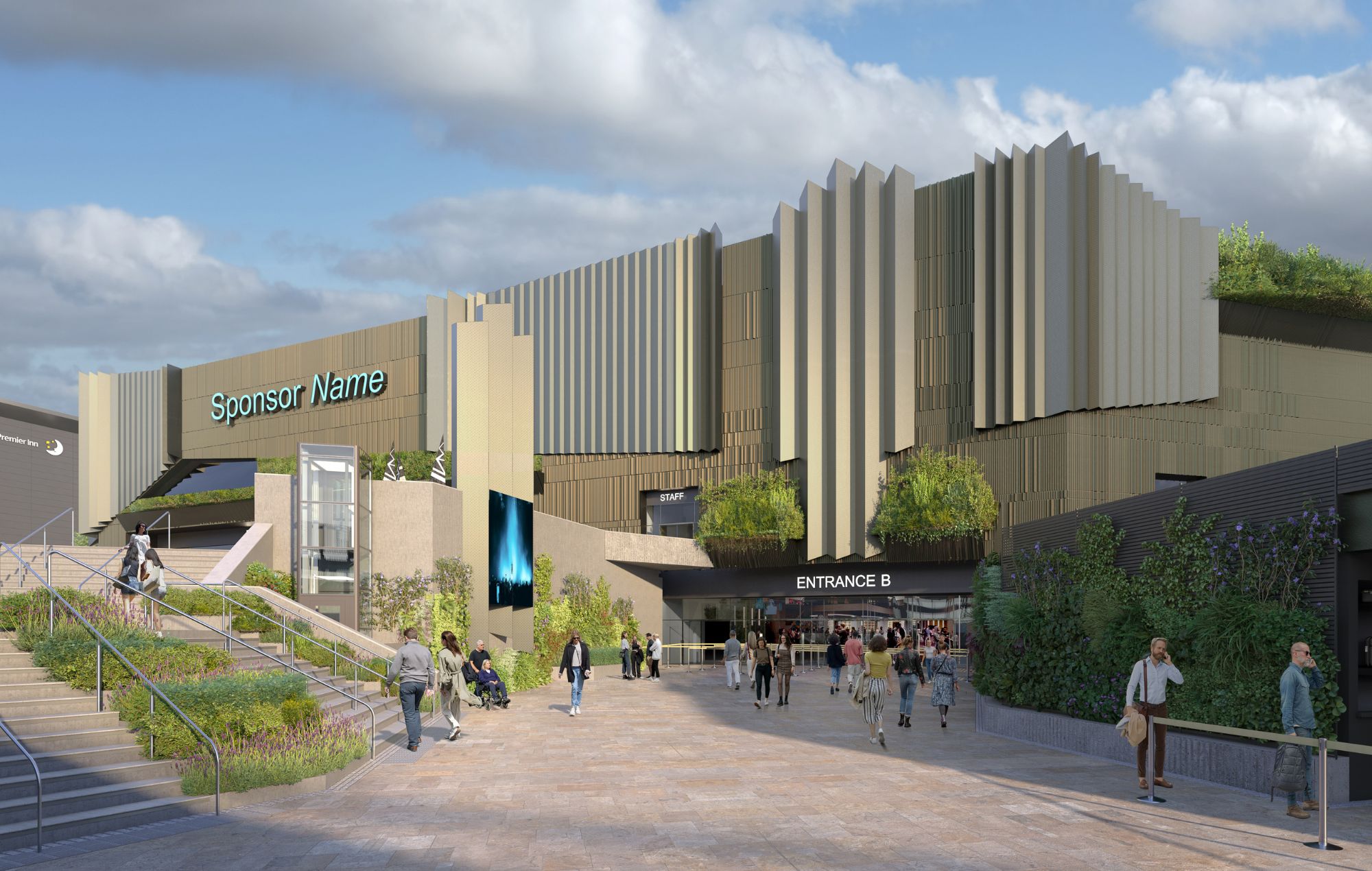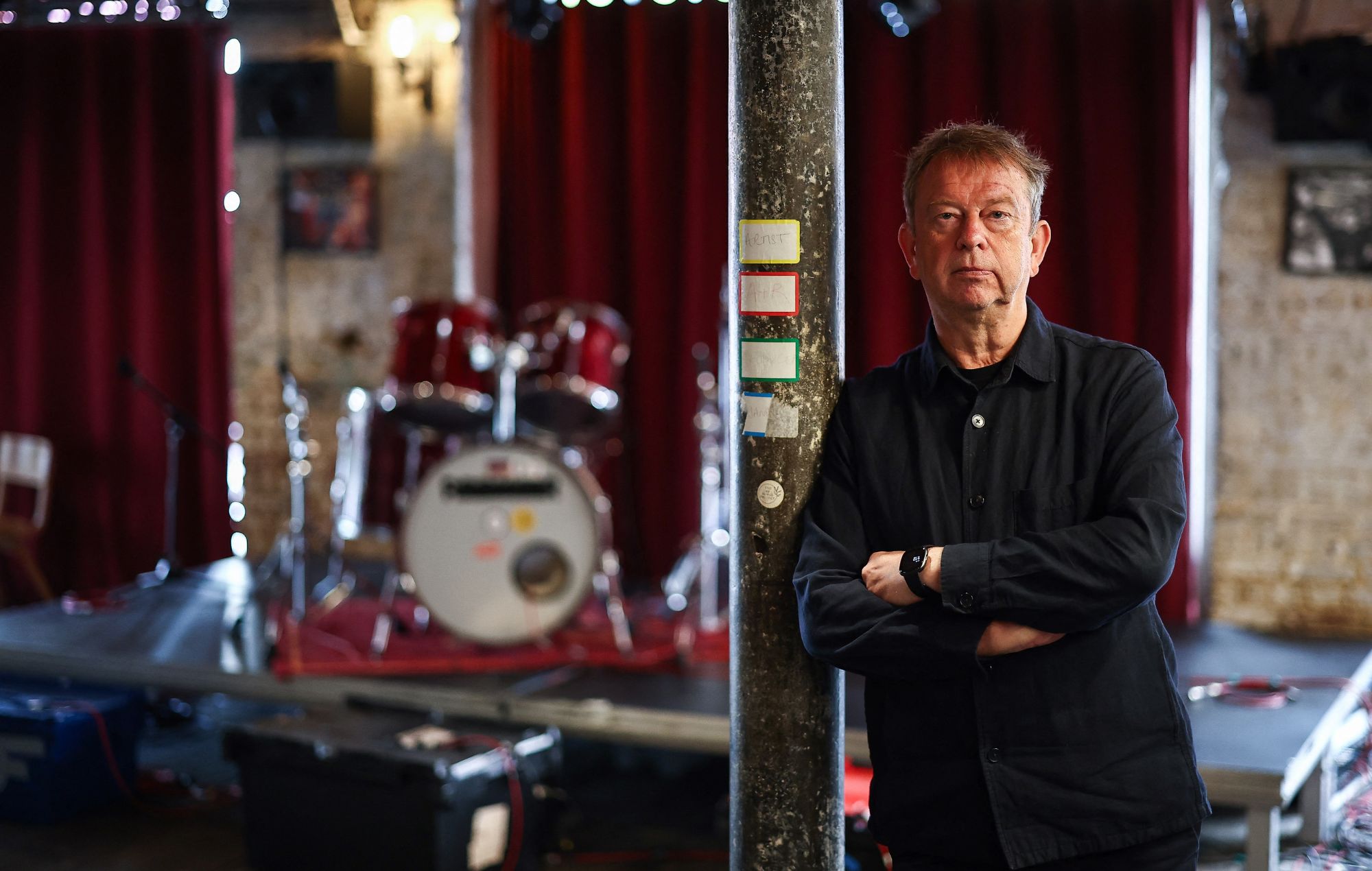
Planning permission has been granted for a new 8,500-capacity arena in Edinburgh, secured by AEG.
The decision was reached today (June 12) by the City of Edinburgh Council, and means that a new state-of-the-art venue will be opening in Edinburgh Park and becoming the latest live entertainment venue in the Scottish city.
An application was put forward with a recommendation for approval following a consultation period for the submission. The new venue will see AEG Europe – which also owns The O2 Arena in London, Berlin’s Uber Arena and more – team up with developers and site owners Parabola for the new site.
It is set to span 18,500 square metres and will be located from Edinburgh Park to the West of the Scottish capital.
According to a press release, it is also estimated that it will bring an estimated £520million per annum in gross value to the Edinburgh economy, and inject a further £83million per annum back into the local economy. It is set to bring around 700,000 visitors each year and create a reported 1,000 operational jobs in and around the Arena.
“We are delighted to have been granted planning consent for a cutting-edge new venue for Edinburgh,” said Alex Hill, President and CEO of AEG Europe. “Having worked closely with City of Edinburgh Council, we strongly believe the arena will deliver huge benefits to the city throughout every stage of the building’s life cycle – from development to completion, for years to come when we’re bringing the world’s best artists to the Scottish stage.”
The press release also states that AEG Europe Guest Experience and Sustainability experts have been a part of the process, and ensured that the design and construction reflects sustainability measures. It also hopes to make the venue into one of the UK’s most sustainable arenas.

“We thank the City of Edinburgh Council for their forward-thinking and proactive approach and for their shared vision of a new best-in-class arena for Edinburgh,” Alistair Wood, Executive Vice President, Real Estate and Development, AEG Europe added. “We now turn our attention to expanding on these plans through the appointment of an external contractor, as well as seeking naming rights partners and finalising funding partners.”
News of the new arena comes amid countless grassroots venues across the country facing an uncertain future, and hundreds being forced to close due to increasing financial strain.
Back in February 2023, the MVT shared its 2022 annual report, which highlighted the grave danger that venues and UK face without urgent action. It showed that audience numbers were at 89 per cent of their 2019 level at about 21million, and urged for larger venues to invest back into grassroots spaces to keep the UK’s live music scene afloat.
It was one of eight new arenas proposed to be built and opened in the UK at the time, including Manchester’s now-opened Co-op Live. Others named were the YTL Arena Bristol (to open in 2025 or 2026 with a proposed capacity of 19,000), New Cardiff Bay Arena (proposed to open in 2025 with a capacity of 17,000), Gateshead’s The Sage (12,500 capacity), Sunderland Arena (still in discussion with 10,000 capacity), and the Dundee Arena (with a proposed 10,000 capacity).
“There are eight new arenas being built in the UK. I told someone from the industry this and they couldn’t believe me, although it’s probably their artists that will be filling it for the next six years or so. But they won’t be filling it in 10 years, because it’s possible that The Rolling Stones will eventually die,” MVT CEO Mark Davyd said at a hearing last year.
“We have got to have a proper research and development arm in this country that supports new artists, develops their careers and brings them out of this. That is the responsibility of everyone in this industry, and it simply isn’t good enough to wait for a lone venue operator to take a chance on a new band, losing money until you can wait until they sell enough tickets to take it up a level so the artist can never go back there again and there’s no return for that venue operator.”

Just last month, various artists and figures from the music industry spoke to NME about the push for a £1 ticket levy on big venues that would be donated back to grassroots spaces, and a government committee of UK MPs expressed their support too, as well as push for a cut in VAT.
It came to the forefront of discussion again as the MVT delivered their full report into the state of the sector for 2023, showing the “disaster” facing live music with venues closing at a rate of around two per week. Presented at Westminster, the MVT echoed their calls for a levy on tickets on gigs at arena size and above and argued that “the big companies are now going to have to answer for this”.
“We are grateful to the many dedicated local venues who gave up their time to take part in our inquiry,” Dame Caroline Dinenage MP, Chair of the Culture, Media and Sport Committee said at the time. “They delivered the message loud and clear that grassroots music venues are in crisis. The ongoing wave of closures is not just a disaster for music, performers and supporters in local communities up and down the country, but also puts at risk the entire live music ecosystem.
“If the grassroots, where musicians, technicians, tour managers and promoters hone their craft, are allowed to wither and die, the UK’s position as a music powerhouse faces a bleak future.”
Since then, the MVT has called upon politicians from all parties to “seize the moment” and help support the live music sector ahead of the UK General Election on July 4.
NME has reached out to a spokesperson for the new Edinburgh Park arena for comment about the proposed ticket levy, and whether the venue has plans to pay back some of its profits into local grassroots music venues.
While some critics have argued that it is unfair to the consumer to make already costly tickets more expensive, Enter Shikari have proven that it can be done with their own scheme coming at no extra cost to fans on their 2024 arena tour.
Back in October 2023, Ticketmaster also announced a new plan to allow its customers to contribute directly to the MVT and independent ticketing company Skiddle began donating 50p from every ticket sold towards saving grassroots music venues.
Elsewhere, The Piece Hall in Halifax launched an MVT donation scheme while Taxi app FREENOW pledged to give £1 from every journey in an effort to save grassroots music venues.
The push also comes following news that an increasing number of UK independent festivals are being either cancelled or postponed. The AIF has argued that the scene is at a “critical point” if they don’t receive a VAT reduction from the government.
The post Planning permission for new 8,500-capacity arena in Edinburgh Park secured by AEG appeared first on NME.





